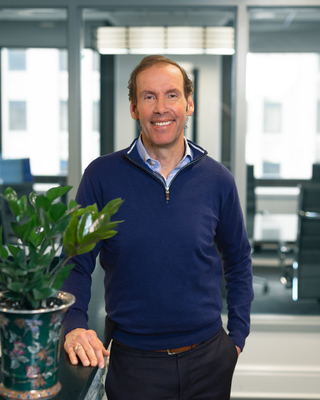A Further Look | Jan 03, 2022
The Multi-Generational Legacy of Mellon
David B. Root, Jr.CFP®
CFP®

The Mellon family, especially the business and philanthropic endeavors of Andrew William Mellon, has forever impacted Pittsburgh’s position as a major American city. The Mellons’ influence over the region’s economy includes such names as Alcoa, the University of Pittsburgh, Koppers, Gulf Oil and, of course, Mellon Bank.
While Andrew Mellon’s highly ambitious ‘100-year plan’ for the family laid the foundation for an enduring legacy, sustaining wealth across generations is a massive and well-documented challenge. Research demonstrates that approximately 70% of families do not successfully transfer wealth to the second generation, and 90% do not transfer successfully to the third.
The family that not only effectively passed on their capital, but also built upon that foundation for two centuries, offers plenty of lessons when confronting this complex responsibility. As the 28th wealthiest family in the United States (an estimated $11.5 billion according to Forbes), the Mellon’s illustrate one of our nation’s greatest stories of multi-generational accomplishment.
In 1818, a five-year-old Thomas Mellon came to the U.S. as an Irish immigrant. He later chose not to follow his father into farming and, after graduating from what is now the University of Pittsburgh, Thomas became a lawyer, a judge, and a successful entrepreneur. With the income he earned in those occupations, he reinvested into real estate and banking.
Later in life the ‘Judge’ focused on financial endeavors. Rather than follow Andrew Carnegie's substantial philanthropic efforts, he instead split his estate among his sons with the expectation that they grow the family fortune. Each generation was urged to push forward a bigger contribution than he or she was given. Thomas Mellon not only expected his progeny to be self-sufficient heirs, but he also expected them to be active entrepreneurs.
His fourth son (and sixth child), Andrew, embraced this familial course. Andrew became a prolific turn-of-the-century venture capitalist and long-tenured public servant. Andrew expanded the family’s wealth, purchasing equity in a company that later became Alcoa and profited substantially from selling Union Steel to J.P. Morgan's U.S. Steel Corporation. Later, he became U.S. Treasury Secretary, serving in three administrations between 1921 and 1932.
Unlike his father, Andrew would give generously as a philanthropist. A particularly exquisite example is the National Gallery of Art in Washington, D.C., established in 1937, which was free to the public and comprised almost entirely of Mellon’s personal collection. He also played a major role in the financing and construction of the iconic Cathedral of Learning at the University of Pittsburgh.
Andrew protected his family’s wealth by giving much of his fortune to his children and pursuing philanthropic ventures (though this was partly out of necessity by changes in tax regulation). Andrew’s investing in the next generation paid significant long-term dividends for the family.
His nephew William Larimer Mellon, eager to prove himself just as his uncle and grandfather had done, started an oil company seeded with $10,000 from the family coffers. That business became Gulf Oil. Nearly a hundred years later, Gulf Oil was sold to Chevron in 1984 for $13.3 billion.
While not all Mellons have had a high profile, most followed through on Thomas’s request to invest, diversify, and to do so self-sufficiently. The Mellons have endured largely because of a shared set of family values: those of individual initiative, thoughtful preparation, and a focus on capital preservation. A contemporary Mellon, Matthew Mellon, shared his view of the lessons passed down from previous generations: "You never touch the principal. And you try to spend 1% of your income that comes in. There are always surprises. Always emergencies. Always charities. Trust me, you end up spending 20% of your income."
Certainly, not all families enjoy the financial successes of the Mellons, and wealth to this degree can bring challenges more numerous and more complicated. However, the point still holds that many families of varying degrees of wealth and varying positions along their personal financial journeys face the same threats to preserve wealth for future generations. Communication of family values, trust between family members, and adequate preparation of the next generation are the ‘softer’ sides of the equation. Yet, as the Mellon legacy demonstrates, they are absolutely critical features of multi-generational success. If any of these three legs breaks down, broaching the ‘harder’ topics of financial or estate matters becomes exceedingly difficult.
Further, while assets such as cash, real estate, securities, or business ownership may begin as meaningful ‘principal’, in Mr. Mellon’s terms, all parties involved must be very aware that these assets can be quickly diminished by taxation, inflation, changes in regulations, poor investment stewardship, and irresponsible spending, among various other pitfalls. To have a chance at success, the entire picture - both the hard financial matters and the soft interpersonal matters - must be addressed in a methodical manner and must include all important stakeholders.
The Mellons provide both a classic and contemporary example of multi-generational financial and philanthropic success. All families, though perhaps especially founding generations, could benefit from the Mellon’s precedent of well-inculcated values, careful planning and preparation, and a determined emphasis on capital preservation. Whether currently in the process of building wealth for yourself and your future generations, just beginning to think about how to best serve your next generation, or perhaps even evolving as a beneficiary, one ‘quick’ question that just might be relevant is: “What is your 100-year plan?”
Thanks for reading,
Dave
This material has been provided for general, informational purposes only, represents only a summary of the topics discussed, and is not suitable for everyone. The information contained herein should not be construed as personalized investment advice or recommendations. Rather, they simply reflect the opinions and views of the author. D. B. Root & Company, LLC. does not provide legal, tax, or accounting advice. Before making decisions with legal, tax, or accounting ramifications, you should consult appropriate professionals for advice that is specific to your situation. There can be no assurance that any particular strategy or investment will prove profitable. This document contains information derived from third party sources. Although we believe these third-party sources to be reliable, we make no representations as to the accuracy or completeness of any information derived from such sources, and take no responsibility therefore. This document contains certain forward-looking statements signaled by words such as "anticipate," "expect", or "believe" that indicate future possibilities. Due to known and unknown risks, other uncertainties and factors, actual results may differ materially from the expectations portrayed in such forward-looking statements. As such, there is no guarantee that the expectations, beliefs, views and opinions expressed in this document will come to pass. Information presented herein is subject to change without notice and should not be considered as a solicitation to buy or sell any security. All investment strategies have the potential for profit or loss. Asset allocation and diversification do not ensure or guarantee better performance and cannot eliminate the risk of investment losses.

David B. Root, Jr.
CFP®